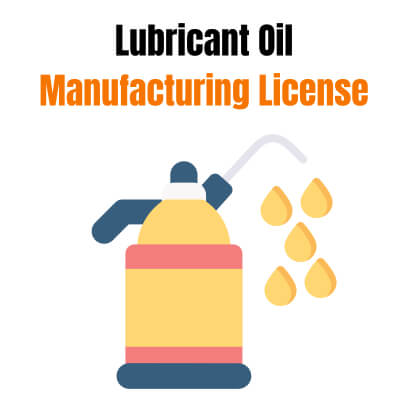
Lubricant oils are essential to the smooth operation of engines and machinery in the fast-paced world of production. One of the first things you'll need to do if you're thinking about going into the lubricating oil manufacturing industry is get the required licenses. You may be confident that you will be able to negotiate the regulatory landscape by following this guide, which will help you through the process of applying for a lubricating oil manufacturing license.
It's critical to comprehend the legislative framework controlling permits for the manufacturing of lubricating oils before beginning the application process. Because regulations can change based on where you live, it's important to do your homework. Generally speaking, you'll have to abide by rules issued by government organizations in charge of manufacturing standards, product safety, and environmental preservation.
Research Applicable Regulations: Start by learning about the local laws and specifications pertaining to licensing for the production of lubricating oils. To make sure you fully grasp what's required, look for information from industry associations or government bodies.
Identify Regulatory Authorities: Find out which governmental organizations are in charge of regulating licenses for the production of lubricating oils. These organizations could be health departments, environmental protection organizations, or industry-specific regulatory authorities.
It's time to get ready to submit your application for a manufacturing license to produce lubricant oils after you've become familiar with the regulatory environment. Compiling required documentation, filling out forms, and making sure all relevant regulations are followed are all part of this process.
Gather Required Documentation: To begin, assemble the materials needed for your license application. These could contain records of your company's incorporation, evidence of your adherence to environmental laws, production schedules, and safety data sheets for your lubricant oils.
Complete Application Forms: Completing application forms supplied by the regulatory body is a common step in licensing procedures. Please take the time to fill out these forms completely and accurately, including all necessary information.
Create a Manufacturing Plan: Describe in detail your manufacturing process, including the tools and materials you'll use, the safety precautions you'll take, and the quality control methods you'll employ. Your manufacturing plan should show that you are dedicated to meeting regulatory requirements and making premium lubricant oils.
It's now time to submit your application for a manufacturing license to produce lubricating oils if you have all of your paperwork together and your application papers filled out. If the regulatory body provides submission instructions, carefully follow them to make sure your application is handled properly.
Review Your Application: Please take a moment to carefully study your application before submitting it. Make sure you have included all necessary papers and that your application forms are completed accurately.
Submit Your Application: Whether the regulatory body instructs you to submit your application online, by mail, or in person, be sure you follow their instructions. Make sure you submit your application along with any necessary fees or payments.
Follow Up as Needed: After filing your application, be ready to get in touch with the regulatory body again if necessary. Before completing your application, they might have questions or need more details.
Regulatory inspections to confirm compliance with manufacturing standards and laws may occur after your application is submitted. It's imperative that you provide inspectors with your full cooperation and address any queries or worries they might have.
Get Ready for Inspections: Check that your production facilities and procedures adhere to regulations by reviewing them before the inspection. To reduce interruptions during inspections, take early measures to address any potential problem areas.
Cooperate with Inspectors: Throughout the inspection process, give inspectors your complete cooperation and grant access to any facilities or documentation that they may need. As a way to show your dedication to compliance, be open and honest about your production methods and procedures.
Address Compliance Issues: During the inspection, if inspectors find any compliance concerns, promptly resolve them. To put corrective measures into place and guarantee continued adherence to regulations, collaborate closely with regulatory authorities.
Obtaining a Lubricant Oil Manufacturing License requires careful attention to regulatory requirements and diligent preparation of your application. By understanding the regulatory framework, gathering the required documentation, and submitting a thorough application, you can navigate the licensing process successfully. Remember to comply with regulatory inspections and address any compliance issues promptly to maintain your license and operate your manufacturing business responsibly.





We are the pioneers in offering environmental consulting services to our patrons, giving us the first mover advantage & keeping us ahead of our competitors.
Very experienced in filing, monitoring & issuance of CDSCO Certificates, Drugs Licensing, Environmental Impact Assessment, AERB certificates, Pollution Control Board CTE & CTO, Waste Management Authorization from State Pollution Control Boards, Fertilizers & Insecticides Licensing
